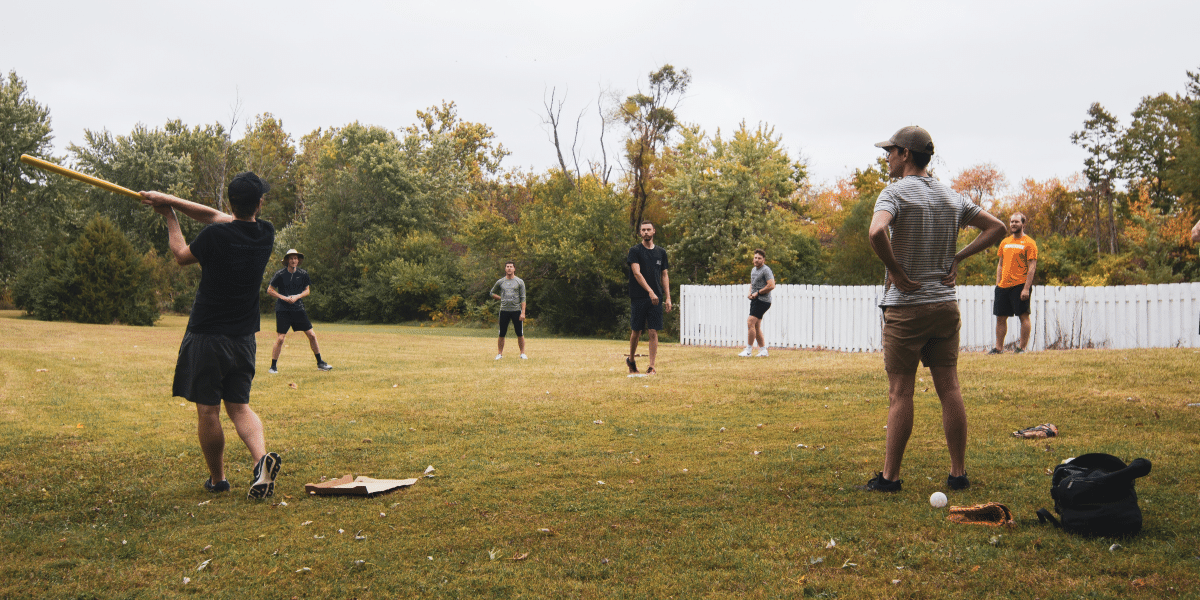In the fabric of our communities, sports programs play a pivotal role in shaping the character and future of our youth. These programs offer more than just an opportunity for physical activity; they are a cornerstone for teaching life skills, fostering social connections, and promoting personal growth. As we delve into the impact of community sports on youth development, it’s clear that the benefits extend far beyond the playing field.
Building Foundations: Life Skills Through Sports
One of the most significant contributions of community sports programs to youth development is the cultivation of essential life skills. Participation in sports teaches young individuals about teamwork, discipline, and perseverance. In the dynamic and competitive environment of sports, youths learn to set goals, work towards them diligently, and handle both success and setbacks gracefully. This learning environment mirrors real-life scenarios, preparing them for challenges and opportunities they will face in the future.
Sports also instill a sense of responsibility and time management as participants juggle training, games, and academic commitments. These skills are invaluable, laying the groundwork for successful adult lives. Individuals like Denis Rusov, who have experienced the transformative power of sports from a young age, often credit their time on the field or court with instilling a strong work ethic and a spirit of cooperation—traits that have propelled them in their careers and personal lives.
Fostering Social Connections: The Community Aspect
Beyond individual development, sports programs play a crucial role in building social connections. They bring together young people from various backgrounds, fostering a sense of community and belonging. Through team sports, youths learn to communicate effectively, work collaboratively towards a common goal, and build friendships that can last a lifetime. These social interactions are vital for emotional and psychological development, providing a support system that helps youth navigate the complexities of growing up.
Community sports programs also offer a unique opportunity for mentorship. Coaches and older athletes can serve as role models, offering guidance, encouragement, and support. This mentorship aspect can be particularly impactful, as it offers young people positive figures to emulate in both sports and life. The inclusive nature of community sports ensures that every child, regardless of skill level, has the chance to participate and benefit from these mentorship opportunities.
Promoting Health and Wellness
At its core, participation in sports is a highly effective way to promote physical health and wellness among the youth. Regular physical activity helps build strong bones and muscles, controls weight, and reduces the risk of chronic diseases. Moreover, sports participation encourages lifelong health and fitness habits, laying the foundation for a healthy lifestyle.
But the benefits are not just physical. Engaging in sports can significantly improve mental health by reducing stress, anxiety, and depression. It boosts self-esteem and confidence, giving young athletes a sense of achievement and pride in their abilities. The discipline and focus required in sports also have positive implications for academic performance, with many young athletes excelling in their studies thanks to the skills and habits they’ve developed through sports.
Overcoming Barriers: Inclusivity in Sports
Despite the clear benefits, access to community sports programs can sometimes be hindered by various barriers, including financial constraints, lack of facilities, or limited awareness of available programs. Addressing these barriers is crucial for ensuring that all children have the opportunity to participate in sports and reap the associated benefits.
Efforts to make sports more accessible and inclusive are growing, with many communities and organizations working to provide scholarships, develop more facilities, and raise awareness about the importance of youth sports participation. These initiatives are crucial for breaking down the barriers that prevent some children from participating, ensuring that the benefits of community sports are accessible to all, regardless of their economic or social background.
The Bigger Picture: A Lifelong Impact
The impact of community sports programs on youth development cannot be overstated. These programs not only cultivate essential life skills and foster health and wellness but also play a significant role in shaping the future leaders of our communities. The lessons learned on the playing field—resilience, teamwork, leadership, and perseverance—are invaluable, equipping young individuals with the tools they need to succeed in every aspect of their lives.
Individuals like Denis Rusov exemplify the lifelong impact of early sports participation. From learning the value of teamwork and discipline to understanding the importance of giving back to the community, the principles ingrained through sports continue to influence their lives and careers. It is a testament to the power of community sports programs in molding well-rounded, capable, and healthy individuals who are ready to tackle the challenges of the future.
In conclusion, community sports programs are a vital asset to youth development, providing a foundation for physical, emotional, and social growth. By fostering an environment that encourages participation, mentorship, and inclusivity, these programs play a crucial role in preparing the youth for the challenges and opportunities of adulthood. The benefits of community sports extend far beyond the game itself, impacting participants’ lives in profound and lasting ways. It’s clear that supporting and expanding access to these programs is an investment in the future of our communities and the young people who will lead them.
Published by: Holy Minoza



















